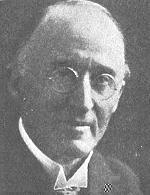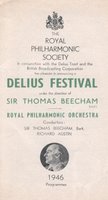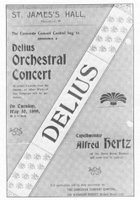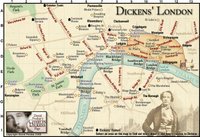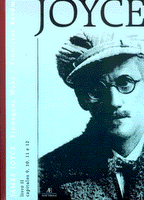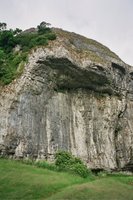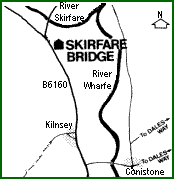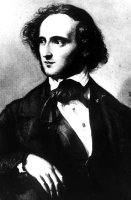


The death of young Romilly in the arms of the merciless waters of The Strid in Wharfedale was recorded in the poem, 'The Force of Prayer' by William Wordsworth and prompted the boy's mother to have Bolton Abbey constructed to his memory, some way down river from Grassington close to the spot where her son met his fate.
THE FORCE OF PRAYER;OR,
THE FOUNDING OF BOLTON PRIORY
A TRADITION
"What is good for a bootless bene?"
With these dark words begins my Tale;
And their meaning is, whence can comfort spring
When Prayer is of no avail?
"What is good for a bootless bene?"
The Falconer to the Lady said;
And she made answer "ENDLESS SORROW!"
For she knew that her Son was dead.
She knew it by the Falconer's words,
And from the look of the Falconer's eye; 10
And from the love which was in her soul
For her youthful Romilly.
--Young Romilly through Barden woods
Is ranging high and low;
And holds a greyhound in a leash,
To let slip upon buck or doe.
The pair have reached that fearful chasm,
How tempting to bestride!
For lordly Wharf is there pent in
With rocks on either side. 20
This striding-place is called THE STRID,
A name which it took of yore:
A thousand years hath it borne that name,
And shall a thousand more.
And hither is young Romilly come,
And what may now forbid
That he, perhaps for the hundredth time,
Shall bound across THE STRID?
He sprang in glee,--for what cared he
That the river was strong, and the rocks were steep?-- 30
But the greyhound in the leash hung back,
And checked him in his leap.
The Boy is in the arms of Wharf,
And strangled by a merciless force;
For never more was young Romilly seen
Till he rose a lifeless corse.
Now there is stillness in the vale,
And long, unspeaking, sorrow:
Wharf shall be to pitying hearts
A name more sad than Yarrow. 40
If for a lover the Lady wept,
A solace she might borrow
From death, and from the passion of death;--
Old Wharf might heal her sorrow.
She weeps not for the wedding-day
Which was to be to-morrow:
Her hope was a further-looking hope,
And hers is a mother's sorrow.
He was a tree that stood alone,
And proudly did its branches wave; 50
And the root of this delightful tree
Was in her husband's grave!
Long, long in darkness did she sit,
And her first words were, "Let there be
In Bolton, on the field of Wharf,
A stately Priory!"
The stately Priory was reared;
And Wharf, as he moved along,
To matins joined a mournful voice,
Nor failed at evensong. 60
And the Lady prayed in heaviness
That looked not for relief!
But slowly did her succour come,
And a patience to her grief.
Oh! there is never sorrow of heart
That shall lack a timely end,
If but to God we turn, and ask
Of Him to be our friend!
1807. William Wordworth
